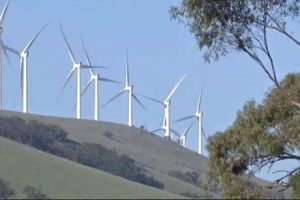The ALP considers the gap between its negotiating position on the RET and that of the Coalition to be too big to overcome.
Attempts to strike a bipartisan deal on the renewable energy target have collapsed, throwing a central climate policy into confusion as the government prepares to welcome world leaders to the G20 summit on the weekend.
Labor’s environment spokesman, Mark Butler, wrote to the industry minister, Ian Macfarlane, on Tuesday saying his party could not accept the “deep and devastating cut to the sector” being proposed by the government and didn’t see “any value in continuing discussions at this point in the time.”
With Macfarlane overseas, the timing of the letter appears partly designed to embarrass the government ahead of the G20, but it is also an indication that the ALP considers the gap between its negotiating position and that of the Coalition to be too big to overcome.
The policy currently requires that 41,000 gigawatt hours of energy come from renewables by 2020. Labor and the renewables industry rejected out of hand the government’s opening gambit in the talks – to reduce the target to about 26,000 gigawatts – saying it would decimate the industry.
It is understood Labor indicated it would negotiate around a target in the mid to high 30,000 gigawatt hours, but this was unacceptable to the government.
The government is already under pressure from US and European negotiators to give climate change a higher profile at the G20 meeting, to help momentum towards an ambitious agreement for post-2020 emissions reduction targets at the United Nations summit in Paris at the end of next year.
And the EU has already agreed to cut carbon emissions by “at least 40%” by 2030 based on 1990 levels with “at least” 27% of energy sourced from renewable sources by 2030.
Labor’s walkout from the talks sets up a high stakes stand-off. Without a renewable energy target, Australia’s new Direct Action climate policy will have little chance of meeting even the minimum target of a 5% cut in emissions by 2020, according to modelling firm Reputex. But investment in renewables will also grind to a halt and existing investments will come under pressure as the value of the market created by the RET remains unviably low.
For the full article please visit: http://www.theguardian.com/australia-news/2014/nov/11/renewable-energy-target-in-confusion-as-negotiations-collapse?CMP=ema_632


